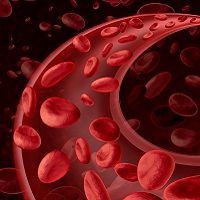Higher Minor Hemoglobin A2 Levels Correlate with Decreased MS Severity
“In this current investigation, the two most statistically significant findings were that higher HbA2 levels correlated with higher RBC levels and prominently lesser MSSS [multiple sclerosis severity score].â€

Minor adult hemoglobin A2 (HbA2) may provide some protection for red blood cells (RBCs) in patients with multiple sclerosis (MS), according to a recent study. Conducted by Muhammed Emin Ozcan of the Department of Neurology at Biruni University in Istanbul, Turkey, and colleagues, the study was published in the journal Neuropsychiatric Disease and Treatment on August 16, 2016.
Although scientists have known that RBC fragility is increased in patients with MS for about 50 years, they have only recently begun to investigate the therapeutic possibilities related to neural damage, RBC fragility, and circulating free hemoglobin (Hb) in MS patients. The researchers wrote that the objective of the study was “to define whether minor adult hemoglobin A2 exerts any protective activity in multiple sclerosis.”
The importance of HbA2 in other conditions, including bipolar disorder, myocardial infarcts, and ischemic cardiac events. However, the researchers say “Until now, HbA2 was regarded mostly as nonfunctional, yet few studies have demonstrated the likely protective activity of HbA2 under stressful conditions.”
The researchers say, “In this current investigation, the two most statistically significant findings were that higher HbA2 levels correlated with higher RBC levels and prominently lesser MSSS [multiple sclerosis severity score].” They attribute those findings to erythroprotective actions of HbA2, which, they say, “reduces hemolysis and subsequent release of the neurotoxic free Hb.” Additionally, the researchers found that patients treated with interferon B1a had the highest HbA2 levels.
“HbA2 and its oxidative denaturation product hemichrome A2 enhance RBC membrane stability to a greater extent than do major HbA or hemichrome A,” say the researchers, leading them to conclude, “HbA2’s erythroprotective functions may reduce free Hb and long-term neural injury in MS.”
Additional studies, especially those investigating the effect of drugs on HbA2 as well as genetic induction of HbA2 should be pursued. “We have very limited knowledge of drugs capable of inducing HbA2,” write the researchers, adding that the area deserves additional attention.